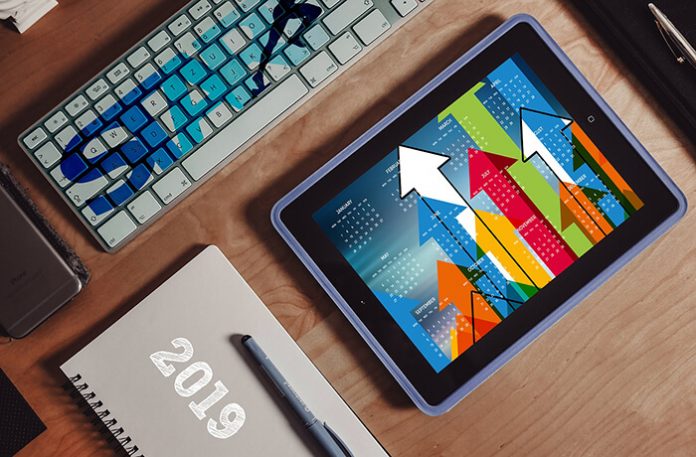Choosing to step outside of the safety net of the corporate office and into the world of freelancing can be incredibly daunting—but it does come with its own unique set of rewards. Whether you are planning to do a bit of additional contracting to supplement your work regime or intend to take the opportunity to fully go it alone in 2019, it’s important to be aware of the potential pitfalls of freelancing, and how to avoid them.
For most freelancers, the first hurdles faced are financial. Setup costs, cash-flow issues and tax calculation conundrums can all cause teething problems—conquer these and the world is your oyster. With this in mind, we’ve devised some simple strategies that can help keep those initial costs to a minimum while you find your feet as a self-employed contractor.
1. Don’t go overboard with your home office
One of the advantages of contracting is that you get to work from your own dwelling a lot of the time—and this means you get to design your own office. It’s your home and your rules, but try not to go too overboard. While a neat and tidy workspace can help promote productivity, you can get your Feng Shui in order without having to consult the services of a renowned interior designer. Start with basic equipment until you’ve reached a point of financial equilibrium. When your money situation is a bit more stable, you’ll be in a better position to purchase that ridiculous-looking desk that will go out of fashion in twelve months’ time!
2. Keep track of your expenses
Rule number one of freelancing: always, always, always keep receipts and copy invoices. These are crucial when it comes to claiming expenses and lowering your annual tax bill. If you travel for work (to meet a potential client or undertake work in the home of a customer, for example) you can even claim expenses for fuel, public transport costs and food. There are a multitude of smartphone apps available which allow you to scan your receipts to log your purchases. Many of these apps are accepted as proof by HMRC, so start logging your expenses today.
3. Teach yourself new skills
The internet is a fantastic resource for learning that can be put to good use. With enough time, you could become an expert at pretty much any discipline—from fire-eating tutorials on YouTube to coding tips and discussions over at Stack Overflow, the educational possibilities online are virtually endless. If you’ve got niggling IT issues in your home office, why not take some time to learn how to fix them yourself instead of forking out a one-off fee for a consultant? If you’re lucky, it could be a quick five-minute fix—like turning your computer off and on again.
Self-education is something that can be applied throughout your entire freelancing career—and by constantly developing new skills, you’re also making yourself a more attractive proposition to prospective clients.
4. Get in charge of your finances
Complacency is the contractor’s worst enemy. Small businesses in the UK lose thousands of pounds each year in late payment fees on credit cards, missed loan payments and the late-filing of tax forms. Don’t fall into this trap—protect your earnings by getting organised. Use project management software and calendar apps to set reminders to fill in forms, or set some time aside each week to set up automatic direct debits to cover your overdrafts, loans and credit card bills.
5. Take advantage of free trials
The beauty of open-source software is that freeware alternatives to even the most complicated suites and packages now exist. As a freelancer, you might find yourself heavily reliant on a specialist app. Don’t make the mistake of paying for it upfront—more user-friendly alternatives may exist, and it pays to play the field in this regard. Most professional software packages will offer free trials, so take advantage of as many of them as you can. Of course, when you find the right software for your requirements, you’ll probably want to pay for it—until then, go free.
6. Ditch the landline
The days of dial-up internet are long-gone (although we do miss the funky dial-up tone), and let’s face it—the old-fashioned landline won’t be around much longer. Ask yourself: should you really be paying over the odds for landline calls in 2019? Most mobile service providers offer affordable business packages, and internet conferencing services like Skype provide you with the opportunity to meet face-to-face with clients via free video chat. If you must keep your landline, or if you have the need for multiple lines, consider switching to VoIP. This could potentially save you hundreds over the course of the year.
7. Go paperless
In the digital age, there’s really no need to keep paper copies of all your correspondence. It’s wasteful, it’s bad for the environment, and it’s bad for your bank balance too. Stop spending money on paper supplies and start being smarter with your communications. Send invoices via email, and ditch the direct mail marketing campaigns—it’s cheaper and more effective to use targeted advertising and email marketing to reach both existing and prospective clients.
8. Learn the art of bartering
As the sole decision-maker in your company, it’s about time you learned to drive a hard bargain. If you’re regularly placing orders for B2B supplies and services, a little bit of haggling goes a long way. Compare like-for-like quotes and don’t be afraid to show your supplier what their competitors can offer you instead. Try to invoke a race-to-the-bottom price war where there’s only one winner: that’s you. Point out that you’re intent on building up a long-term working relationship with your suppliers, and watch those costs dwindle.
9. Take energy efficiency seriously
If you’ve suddenly decided to start working from home, chances are you’ll notice a spike in your next utility bill. To counteract the increased use of energy in the home, use fluorescent light bulbs and energy-smart appliances. Do some research into government-sponsored rebate schemes, too—signing up to one or more of these schemes could increase your eligibility for green tax credits, so take advantage of them.
10. Consider used equipment
Your office is probably going to need a comfortable chair, ergonomic desk and a computer as a starting point—but you don’t have to bankrupt yourself in the purchasing process. There are many businesses and auction houses that specialise in the sale of used office equipment. Most of it is in pristine condition, having barely been used and seized when a company has gone bankrupt. Give it a new home and save yourself some serious money.
Keep all of this in mind when going it alone, and you should be more confident about weathering the initial financial storm most freelancers face. Remember: by being financially intelligent, you’re investing in the future of your business. Good luck!
Find a Home-Based Business to Start-Up >>> Hundreds of Business Listings.
















































